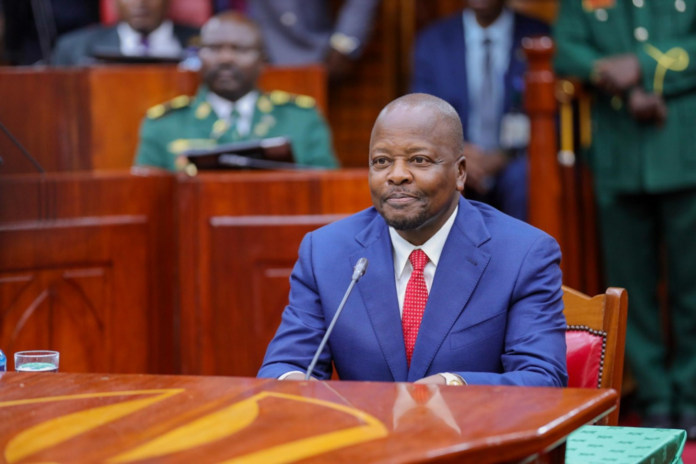
Issues surrounding cartels dominated the vetting of Mutahi Kagwe, the Cabinet Secretary nominee for Agriculture, as he outlined his plans to combat their influence in the sector.
Speaking before lawmakers on Tuesday, Kagwe highlighted the challenges posed by cartels, recalling his 2020 exposé on their operations within Afya House during his tenure as Health CS. He noted that cartels often resist when their interests are threatened.
“Cartels will fight back, and I am ready for that battle. I know the road ahead will be tough, but I have confidence in the support of the people of Kenya, the ministry, and Parliament,” Kagwe stated.
The remarks came in response to a question from Minority Leader Junet Mohamed, who sought clarity on how Kagwe would address the cartel menace within the agriculture sector.
The agriculture sector has long been plagued by powerful cartels that manipulate pricing, market access, and the distribution of essential supplies. Kagwe proposed a consultative approach to dismantling these networks, emphasizing collaboration with farmers, experts, and other stakeholders to ensure reforms benefit Kenyans at large.
“We must be consultative in every step we take. We cannot afford to make decisions in isolation. Agriculture belongs to the people, and we must consult with them and the experts who know the terrain,” he explained.
Lessons from the COVID-19 Pandemic
Drawing on his experience during the COVID-19 pandemic, Kagwe underscored the importance of decisive leadership and transparent decision-making in times of crisis. He recounted the challenges faced in 2020 when shortages of critical protective equipment, such as masks and PPEs, left healthcare workers vulnerable.
“At the time, people were paying outrageous prices for items in short supply, including masks. We had to make tough decisions and sometimes pay higher prices to ensure our healthcare workers were protected,” he said.
Kagwe explained how the government partnered with local manufacturers to produce equipment at significantly reduced costs, cutting prices from thousands of shillings to as low as Sh2,000 per item.
Acknowledging Past Mistakes
The nominee admitted that mistakes were made during the pandemic, particularly in procurement processes, but emphasized the unprecedented nature of the crisis. He highlighted steps taken to restructure organizations like the Kenya Medical Supplies Authority (KEMSA), which faced corruption scandals.
“We did a complete reengineering of KEMSA, changing staff and restructuring the organization to better handle crises in the future,” he noted.
Future Readiness and Reforms
Kagwe concluded by stressing the need for preparedness for future crises, acknowledging that effective leadership and the courage to make difficult decisions are vital to saving lives and protecting the public.
“The next crisis is not a matter of if, but when,” he remarked.
Should he be confirmed as Agriculture CS, Kagwe pledged to take firm action against cartels and work closely with stakeholders to implement meaningful reforms in the sector, ensuring its growth and sustainability for the benefit of all Kenyans.






